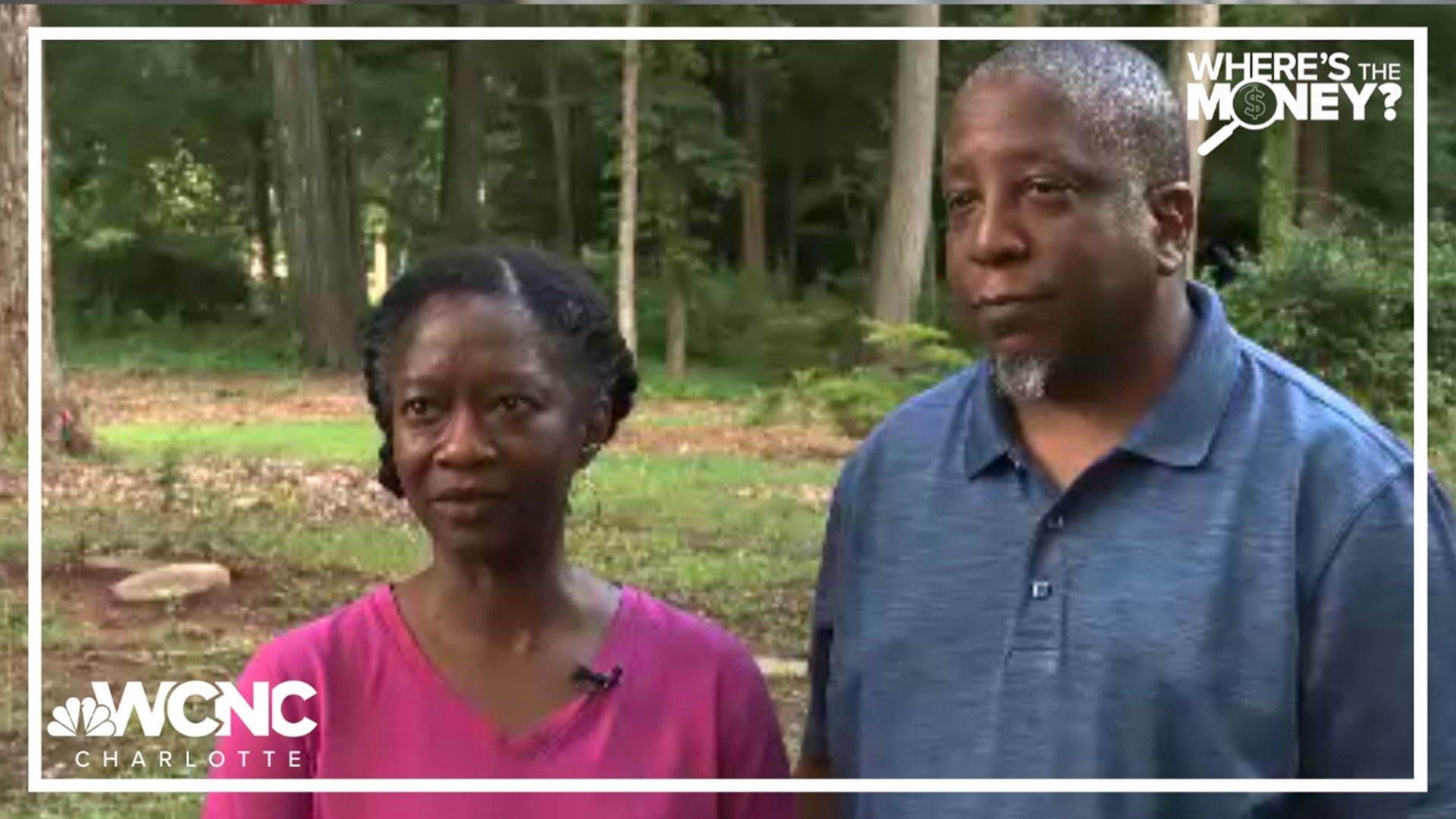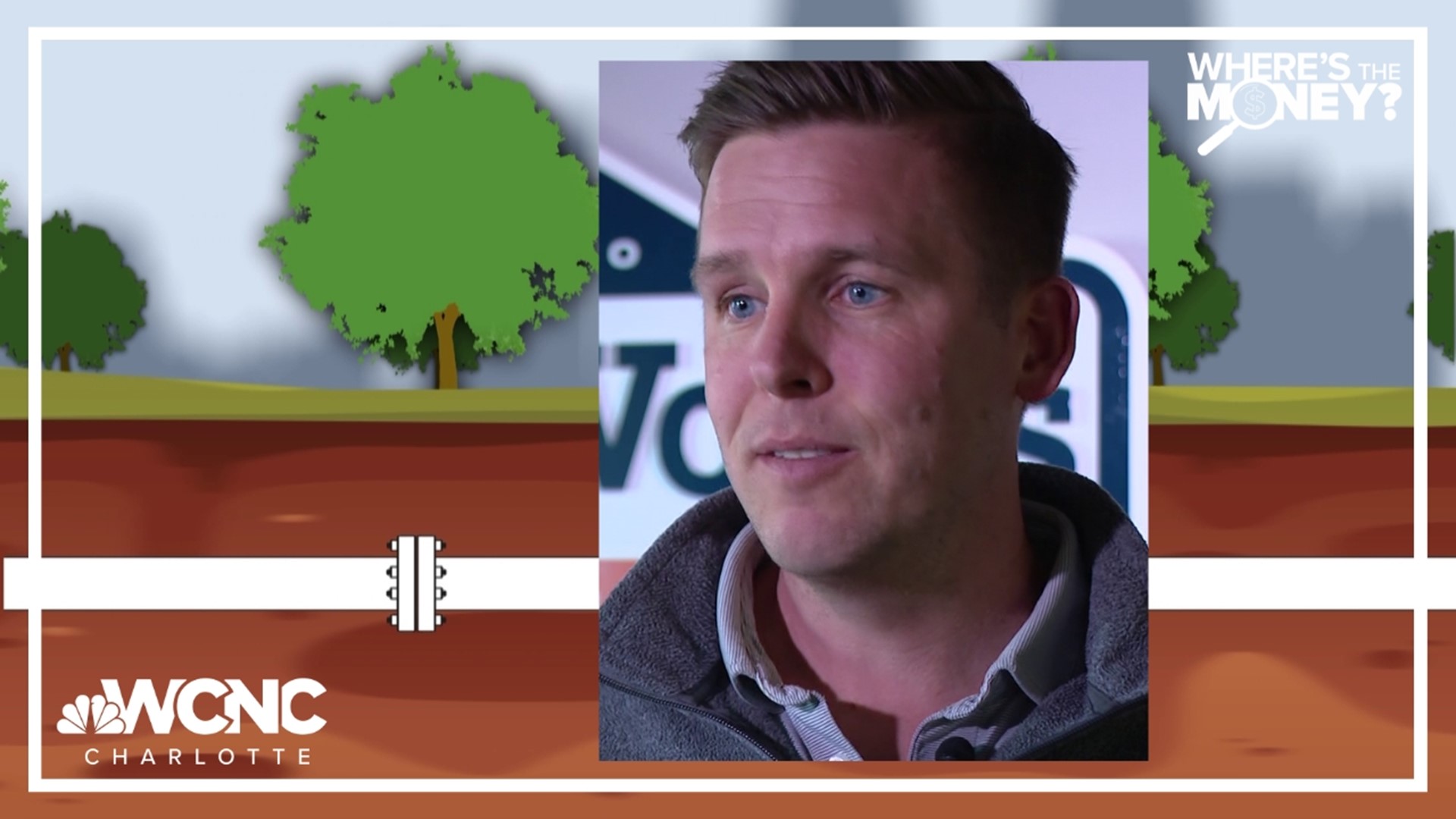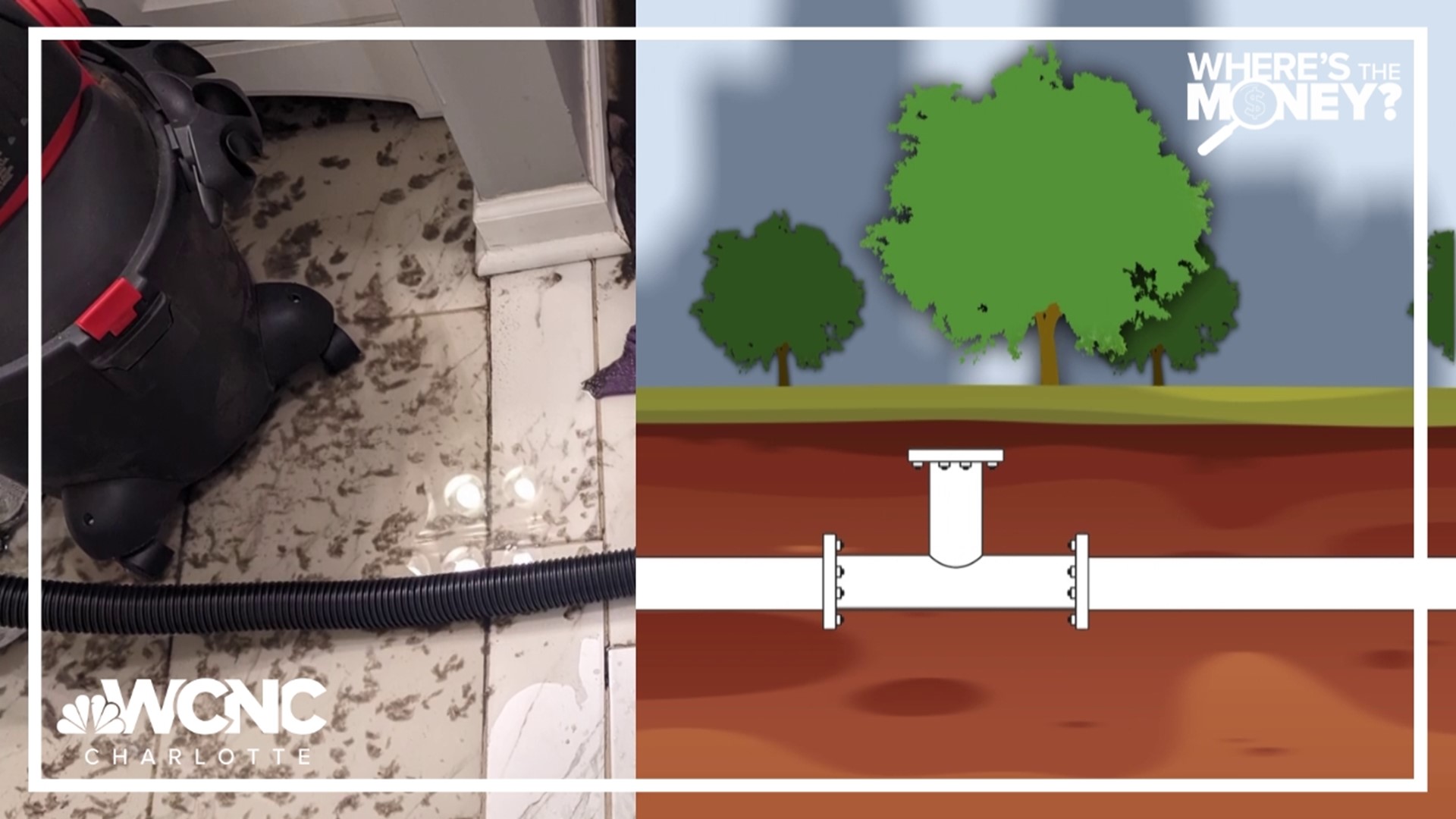CHARLOTTE, N.C. — What starts with toilets and drains making gurgling noises ends with raw sewage seeping into homes, apartments, and businesses, and a WCNC Charlotte investigation found the problem is becoming more common in and around Charlotte. Public records show the city of Charlotte has paid out more than 600 claims totaling almost $2 million since 2018 to cover damages caused by sewage backups and blowbacks.
Dwayne and Katherine Pennant will soon become the latest to receive compensation after more than a year of headaches.
"It interrupted our lives," Katherine Pennant said. "It's not our fault this happened to us. We just don't want this to happen to anyone else."

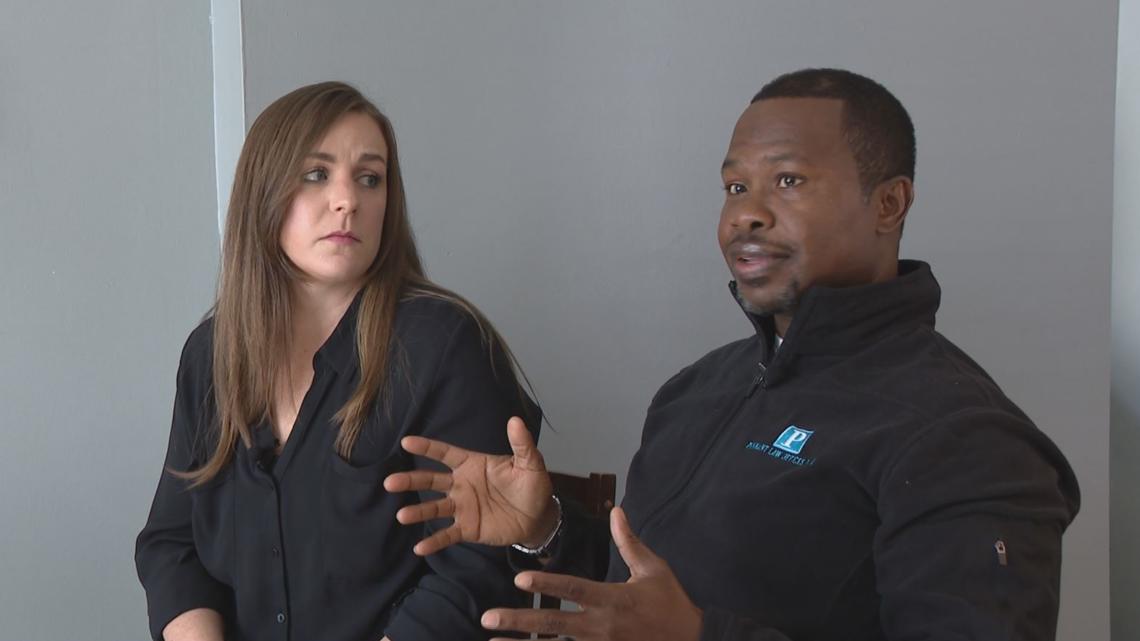
Raw sewage overwhelmed the Pennants late one night in January 2023 as their infant and toddler slept in a nearby room. As much as they tried to stop the overflowing toilets and bathtub from reaching their kids' room, they just could not stop the flow of raw sewage.
"It was everywhere. There was no stopping it. It was disgusting," Dwayne Pennant said. "Obviously, I want to be able to protect my family, but there's not much you can do when there's sewer coming into your home."
In the hours before the mess, they heard gurgling noises. In response, the Pennants said they called out a plumber who found a clog in the city's sewer line. When Charlotte Water crews came out to clean the clog, they said the workers pushed sewage back into their home.
"It blew back," Dwayne Pennant said. "I said, 'Hey, what are y'all doing? We called you all out to help and you're making it worse.'"

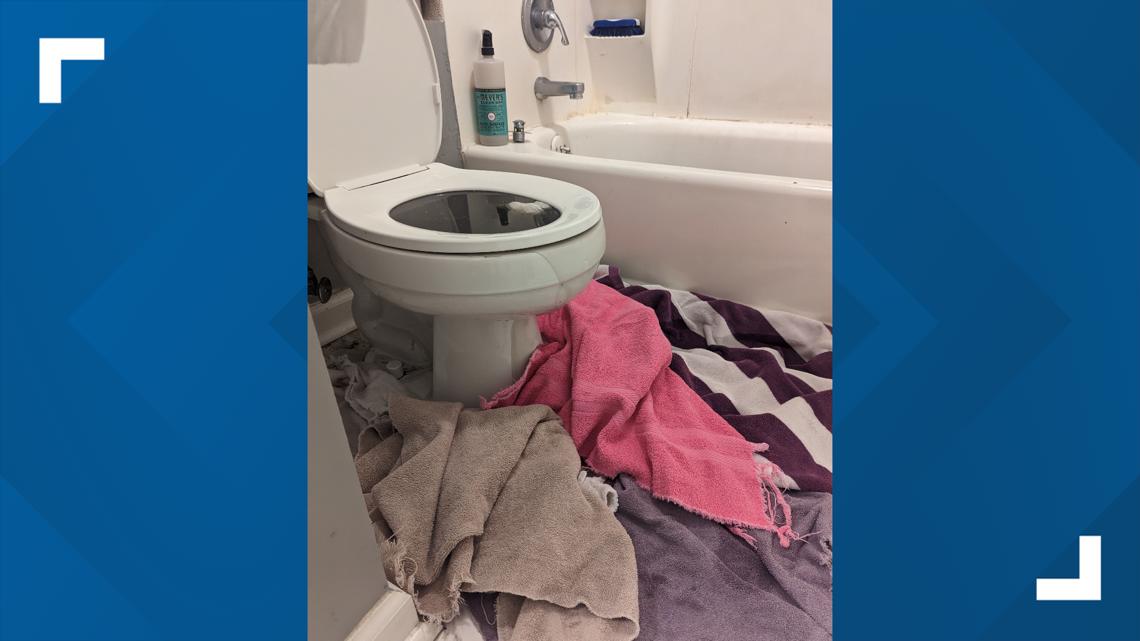
The Pennants said not only did crews fail in cleaning the line, but the city failed in preventing the clog in the first place. As a result, they said the family of four had to spend the next month in a hotel.
"As a homeowner, you shouldn't have to deal with that kind of risk from the city," Pennant said. "This is something that could be avoided with better maintenance. We realize we're not the only ones."
With enough miles of sewer to make it from Charlotte to Alaska, Charlotte Water has said, logistically, crews just cannot proactively inspect the entire system. As a result, the city tends to be reactive, agreeing to pay when a failure is found in the city's lines. Leaders even increased the maximum payout in recent years, but the Pennants believe the city needs to make prevention a bigger priority. Last year alone, Charlotte Water records show blockages alone nearly doubled from 106 to 189.
"It's a real thing. It's happening all the time," Wyatt Works Plumbing owner Seth Wyatt said. "Those calls come in daily; three or four calls a day and we're a small family business, so that's just us."


Wyatt said the calls are often tied to problems on the city's side of the sewer. He said they're routinely caused by thirsty tree roots rupturing lines, especially a concern when there's a drought.
"When there's a lack of rain, the call volume goes up," Wyatt said. "Roots get really thirsty and they will do just about anything to get water and that includes getting into the smallest crack or opening."
Charlotte Water spokesperson Cam Coley said customers are also clogging the lines over time when they dump grease and wipes.
"This is preventable. Most blockages are at the kitchen drain," Coley said. "If it doesn't clog your plumbing, it will clog the public's pipes."
He said the city's worked to educate renters and homeowners about how they can help. In addition, Coley said the city inspects more than 4,000 restaurants a year to make sure they're reducing grease in their lines.
"The goal is to keep all the wastewater in the pipe," he said.
Regardless of the cause, it is the city's responsibility to keep the lines clean, especially its oldest lines. According to state records, the city must clean at least 10% of the system every year.


WCNC Charlotte is always asking "where's the money?" If you need help, reach out to WCNC Charlotte by emailing money@wcnc.com.
"Is the city doing enough to prevent this?" WCNC Charlotte asked.
"That is worked on every day by several people, multiple teams," Coley replied. "We are doing preventative maintenance when we're not responding to emergencies or sewer-related concerns."
Coley said Charlotte Water dedicates a team to inspect 600 of the city's highest priority lines. It is also on pace this year to clean 20% of its sewer system -up from the prior year - and uses acoustic testing and other technology to monitor its lines, so crews' limited time is used efficiently. He said it all comes down to a balancing act between resources and priorities.
"We're looking to clean where it's needed most," Coley said. "The focus is getting at least 10% of the entire system done. The goal is, that way, you're getting the whole system over time."
Charlotte City Councilmember Tariq Bokhari believes this issue is indicative of a larger problem. He said leaders have failed to prioritize basic services.
"I mean, the first step is admitting you have a problem," he said. "And I think we're getting closer to that."
Bokhari, the Budget, Governance, and Intergovernmental Relations Committee vice chair, is calling for a strategic committee that can focus on infrastructure needs.

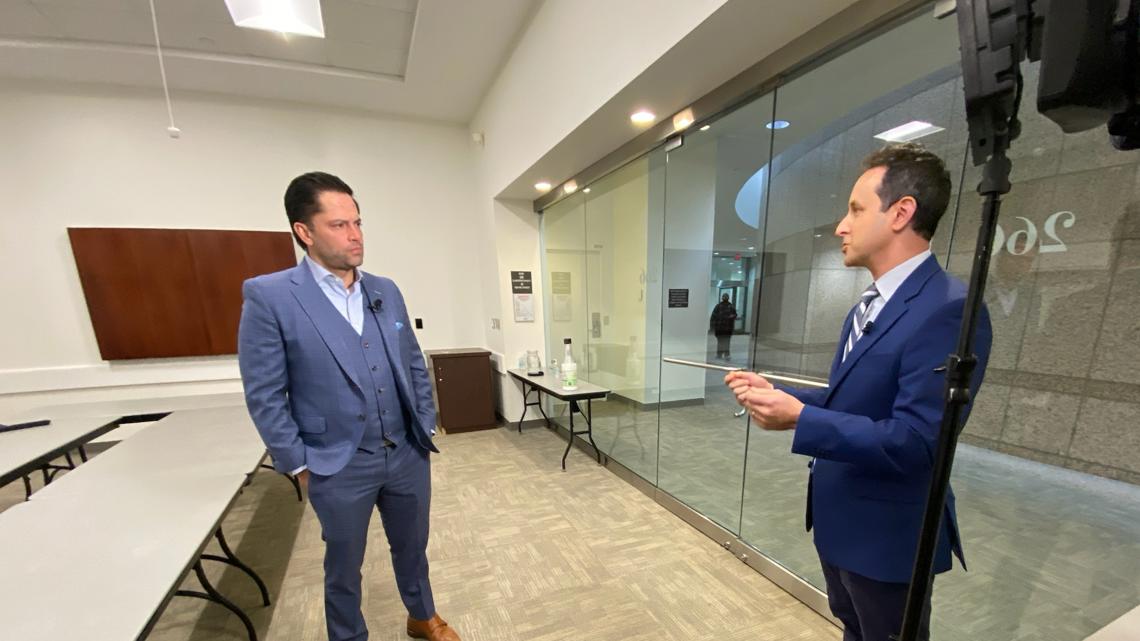
"What is our basic reason for existing for a local municipal government and are we prioritizing those non-sexy, but critically important things as much as we are other projects? And I think the answer is, no, we're not," Bokhari said. "We kind of have them on autopilot. That's not a negative on the employees that are working hard there, it's a negative on what we decide to prioritize as a council. We don't even know the size of the problem yet, so we need to size them out."
The Pennants said they now know the full scope of their problem.
"She was breastfeeding at the time and the level of stress, she couldn't do it. She couldn't produce," Dwayne Pennant said.
"My supply cut off," Katherine added.
It took months of back and forth with the city and filing a lawsuit, but they recently agreed on a price to cover the impact of the blowback, plus the cost of installing a backwater valve to prevent a similar problem in the future.
According to Charlotte Water, customers are the first line of defense in reporting problems. The agency urges people to alert crews through 311 when there are red flags. Seth Wyatt said those red flags include gurgling noises and drainage problems.
If you don't want to take any chances, a plumber can install a backwater valve to protect your home, but it could cost you several thousand dollars.
Contact Nate Morabito at nmorabito@wcnc.com and follow him on Facebook, X and Instagram.
WCNC Charlotte's Where's The Money series is all about leveling the playing field in the Carolinas by helping others and breaking down barriers. WCNC Charlotte doesn't want our viewers to be taken advantage of, so we’re here to help. Watch previous stories where we ask the question “Where’s the Money” in the YouTube playlist below and subscribe to get updated when new videos are uploaded.

